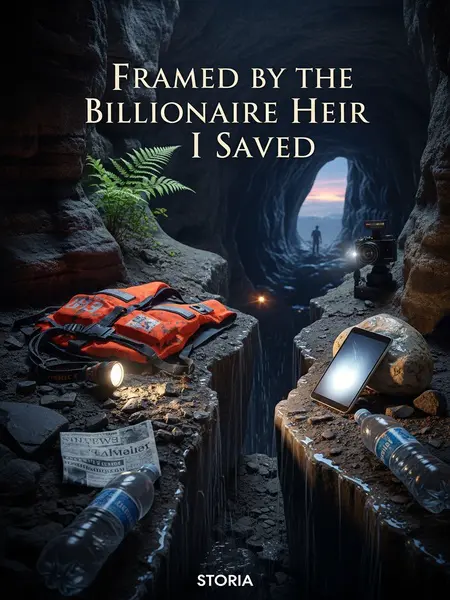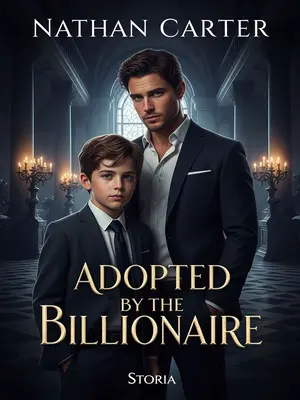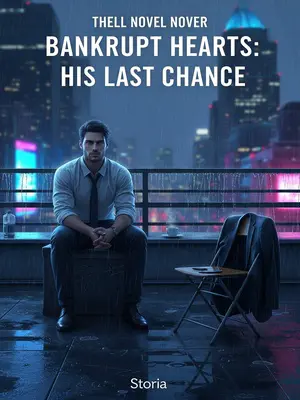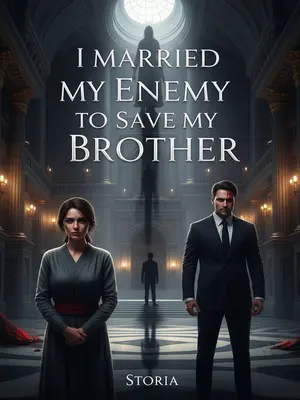Chapter 2: Surfacing
His oxygen tank was almost empty.
He clung to it like a lifeline, each breath coming harder. His hands shook, lips blue with fear and cold. I’d seen that look on rookie divers before—the moment when bravado shatters and panic takes over. I squeezed his shoulder, trying to steady him.
I swapped in a fresh tank and radioed the surface with the update.
Jason’s voice crackled in my ear: “We’ve got him. He’s alive.” I relayed the message to the search team, my own voice tight with relief. Above us, I imagined the cheers—relatives crying, paramedics fist-bumping, a sheriff whistling low. Even the news crews paused to catch the moment.
I took out the grinder I’d brought and started working at the rock pinning Carter’s arm.
Underwater sparks flickered as I worked, the grinder’s buzz mixing with the faint hum of my regulator. I moved fast, careful not to drop the slab on us both. The cold water made my fingers numb, but adrenaline kept me going.
His whole arm had gone numb from the cold and lack of oxygen.
He tried to flex his fingers, grimacing in pain, shaking his head as if to clear the fog. Fear was finally breaking through his stubborn shell. Behind his mask, I could read his lips: ‘Hurry.’
I picked up the pace, burning through my own oxygen at a dangerous rate.
Every second was a gamble. I watched my pressure gauge with one eye, the rock with the other. Jason hovered behind me, flashlight steady, ready to jump in if I faltered.
Finally, after half an hour, Carter was free.
The slab shifted just enough for me to pull his arm loose. I checked for circulation, massaged his fingers, made sure nothing was broken. He nodded, weak but conscious. Relief flooded me.
Just as I was about to guide him out, he suddenly tried to go deeper into the cave without warning.
He jerked away, eyes wild with something like desperation—or maybe madness. I grabbed his shoulder, signaling for him to stop, but he shook me off, twisting away.
I hurried to stop him, signaling that we needed to get out.
I pointed upward, mimed swimming for the surface, tapped my oxygen gauge. Every diver knows those signals. But Carter glared at me, stubborn as ever.
He shook me off, insisting on going forward.
He pointed down the tunnel, miming a forward stroke, jaw clenched. I saw it in his eyes—the hunger to finish what he started, cameras or not.
He meant he was halfway and couldn’t give up.
He gestured wildly, trying to say this was his only shot at the record, the cameras were still rolling, and quitting meant defeat in front of the world. I recognized the look—pride crowding out common sense.
Visibility was shot, the tanks were running low, and his arm was all but useless.
I tried to make him understand—the math didn’t add up. We didn’t have enough air. His arm was done. The longer we argued, the closer we came to disaster.
Seeing that I couldn’t talk sense into him, I tried to drag him back.
He thrashed, kicking against the rocks. My heart pounded. I remembered every rescue drill, every warning about panicked divers being more dangerous than the cave itself.
He started fighting hard, knocking away my flashlight and clawing at my mask.
Bubbles exploded, limbs tangled, my flashlight skittered away. For a moment, I thought we were both finished.
In those tight quarters, fighting meant we’d both get stuck again. And if we waited for another rescue, it might be too late for both of us.
I signaled to Jason for help, then pretended to give in.
Jason circled around to block the tunnel. I loosened my grip, let Carter think he’d won. He surged forward—and that’s when I made my move.
I knocked him out from behind, just hard enough to stun him.
Every instinct screamed against it, but there was no other way. I struck him at the base of the neck—he went limp, bubbles drifting upward.
I checked his vitals, making sure he was breathing, then worked fast. The guilt clawed at me, but survival mattered more than my reputation.
I tied him to my foot with a rope.
The knot was tight, the kind we learned in rescue school. I cinched it to my boot, dragging him behind me like dead weight. My arms shook. I nearly lost my grip on Carter’s line.
Hauling extra weight made the return even more brutal.
Every kick felt like I was swimming through concrete. Jason took the lead, lighting the way. My vision blurred from exhaustion, but I kept moving—one desperate stroke at a time.
Two hours later, I was almost spent. My backup oxygen was running on fumes.
The world shrank to the sound of my own breathing, the ache in my limbs, the pressure in my chest. I counted every breath, racing the clock.
With my last bit of strength, I hauled Carter Evans up.
The surface was chaos—paramedics shouting, camera crews blocking the ER doors, people shouting my name. I collapsed onto the bank, shivering, my whole body trembling.
When I surfaced, I was dizzy and nauseous.
They wrapped me in a blanket, handed me a bottle of Gatorade, and tried to ask questions. All I could do was nod and try not to puke, the smell of antiseptic and cafeteria coffee filling the air.
After several days in the hospital, I started to recover.
The doctors called me lucky—severe dehydration, borderline hypothermia, but nothing permanent. I watched the news from my bed, the TV blaring a daytime soap while nurses offered me Jell-O cups. The screen flickered between images of Carter and me.
Carter Evans was rescued in time—his arm was saved, and he woke up naturally after a few days in a coma.
The surgeons worked a miracle. He was groggy at first, but soon enough, he was sitting up, nurses fussing over him. His parents wept with relief, the staff high-fived in the hallway.
Mr. Carter brought in the media to thank me.
A press conference filled the lobby. Reporters shouted questions, lights flashing as Mr. Carter shook my hand. "A true American hero," he called me, voice thick with emotion. For a moment, it felt like things were finally right.
I thought the matter was settled.
I let myself believe it—maybe I could move on. My phone buzzed with texts. Old friends reached out. Even my mom called, crying with pride.
But three days later, when Carter Evans woke up, the first thing he did was accuse me to the media of trying to kill him.
He sat up in his hospital bed, hair artfully tousled for the cameras, and spun a story that turned my world upside down. The next morning’s headlines were brutal: ‘Diver Hero or Jealous Saboteur?’













